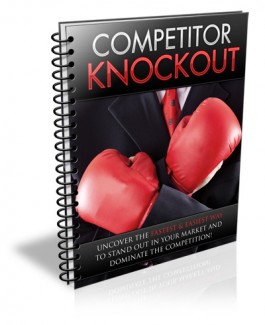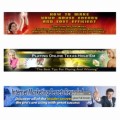 License Type: Private Label Rights
License Type: Private Label Rights  File Size: 567 KB
File Size: 567 KB File Type: ZIP
File Type: ZIP
 SKU: 51796
SKU: 51796  Shipping: Online Download
Shipping: Online Download
Ebook Sample Content Preview:
USP’s are far more than just catchy taglines associated to your company, product or brand. They are reinforcement tools that help you establish credibility in your market while shaping the foundation of your business.
When it comes to creating a USP for your information product, think of the different ways that you can stand out from the competition, including:
Enhanced Training Tools Additional Support Options Extended Guarantee Price Discounts Better Service
Faster delivery/turn around time/completion Additional Bonuses & Special Offers
All of these are common components of what forms a strong USP. Your objective is to evaluate your product, and come up with a powerful unique selling proposition that you can integrate into your marketing campaigns.
The easiest way to come up with a powerful USP is to think about how you would describe your product if asked by a complete stranger that you met at a seminar. You are given 10 minutes to describe your product in enough detail to sell a copy right on the spot.
What would you feel is most important to say about your business or offer within a 10-minute span of time?
This exercise will help get your creative juices flowing, while helping to verbalize the benefits of your product. Call a friend or family member if you have to, and let them ask you questions about your product.
Not only will this help you to evaluate your product objectively, but you can often gain better insight as to what questions and concerns potential customers may have based on the questions you are asked.
If you have an existing channel of communication with your customer base, either through social media sites, community forums or perhaps even through a newsletter, ask for their feedback.
Offer a handful of customers a free copy of your product and let THEM evaluate it, providing important feedback based on what they felt were the most positive aspects of your product, as well as what could possibly use a bit of improvement.
Many times, your customers are the best sources for developing your USP because they know your product better than even you do. After all, you created it for them and you can gain a lot of incredibly valuable information just by letting them try it out, and sharing their thoughts and ideas as to what the most powerful benefit of your product is.
Evaluating feedback from your customer base will also help you to develop a USP that carries a message that matches your market.
For example, if you develop an information product USP that defines your product as “Advanced Training for Beginners”, you’ll struggle to transfer positive branding if the majority of your market have virtually no experience and are looking for a product that teaches them the fundamentals of web design before considering advanced techniques. In other words, your USP message doesn’t match your market.
So, survey your market, pay attention to feedback, and take a hands-on approach to closely monitoring the questions, concerns and problems that your market is facing. Then, develop a USP that speaks directly to the core of what they are most interested in.
When you have evaluated your product, its competition and have decided on a USP for your product, you need to lead your USP by example.
This means that you might have to make changes to the way you do business, or how you present your product on your sales page, within marketing campaigns and in branding your product.
If your USP is “10 Minute Training For $10k per month”, you want to make sure that your product is designed to provide quick access to bite size information that your customer base can instantly apply to their online business.
Make sure your product and USP match up, in every way. If you offer extended support in your USP, or you define your brand by being ‘unique or exclusive’, you need to make sure that your product offers a new perspective, a unique approach or a different way of doing something.
Price Based USP
If your product fails to carry a USP, the only way people will differentiate your product from a competitors’ is on price alone.
Think about this in regards to your own buying decisions. If you were to visit your local computer shop with the intention of purchasing an external hard drive, knowing little about brands or features, and were presented with two similar products to choose from, which would you buy?
In the absence of any other differentiating factor, the lowest price becomes the deciding factor.
You never want to compete on a price based USP, because it leaves you little control over your markets decision whether to purchase from you or a competitor.
Instead, you need to develop a Unique Selling Proposition that uniquely separates you from other products in the marketplace, and do so in such a way that it would be difficult for a competitor to replicate that.
Also keep in mind that your USP not only helps you stand apart but becomes part of your brand, so even if a competitor replicates your USP, if you’ve done your job at associating that unique selling proposition to your product, they’ll struggle to compete.








